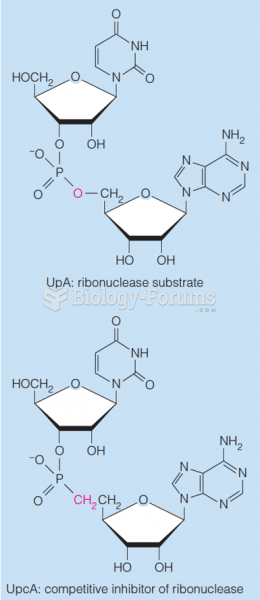|
|
|
Did you know?
Side effects from substance abuse include nausea, dehydration, reduced productivitiy, and dependence. Though these effects usually worsen over time, the constant need for the substance often overcomes rational thinking.
Did you know?
The longest a person has survived after a heart transplant is 24 years.
Did you know?
Cyanide works by making the human body unable to use oxygen.
Did you know?
Blood is approximately twice as thick as water because of the cells and other components found in it.
Did you know?
In most climates, 8 to 10 glasses of water per day is recommended for adults. The best indicator for adequate fluid intake is frequent, clear urination.







